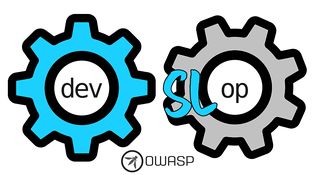This site is the archived OWASP Foundation Wiki and is no longer accepting Account Requests.
To view the new OWASP Foundation website, please visit https://owasp.org
OWASP DevSlop Project
OWASP DevSlop Tool ProjectDevSlop: learning how application security professionals fit into DevOps.Project Website: DevSlop Modern applications often use APIs, microservices and containerization to deliver faster and better products and services, however this changing landscape means security people need to step up their game. DevSlop, "Sloppy DevOps", is an exploration into this area, via several different modules consisting of pipelines, vulnerable apps, and The DevSlop Show, where project members learn and share. DescriptionDevSlop has many modules, including: Patty - An Azure DevSecOps pipeline, with constantly changing components, which published the project's website, DevSlop.co. Pixi-CRS & Pixi-CRS-ZAP are two Circle-CI pipelines that demonstrate adding a WAF to your pipeline for automatic tuning before moving your apps to prod. Pixi is an intentionally vulnerable app and consists of a vulnerable web app and API service. The DevSlop Show is a video streaming series where project members build things live, interview members of the OWASP and InfoSec community, and learn where they fit into DevOps. As more pieces of DevSlop are released they will be introduced here. LicensingThis program is free software: you can redistribute it and/or modify it under the terms of the link GNU Affero General Public License 3.0 as published by the Free Software Foundation. OWASP DevSlop and any contributions are Copyright © by Nicole Becher & Tanya Janca 2017. |
Project ResourcesDocumentation Issue Tracker
Project LeaderNancy Gariché Twitter
Team Members
Related ProjectsClassifications
|
News and Events
| |||||||
To get Pixi is simple!
You can manually download Pixi here: https://github.com/thedeadrobots/pixi
Install Docker and start it.
Type the following at your command prompt:
> git clone https://github.com/thedeadrobots/pixi.git <enter>
> cd pixi <enter>
> docker-compose up <enter>
In your browser go to: http://localhost:8000/login
You're all set!
How can I donate to DevSlop?
Click the button! :)
I have a great idea for new DevSlop additions, how do I tell you(s)?
Email us! [email protected] (Nicole Becher and Tanya Janca). You can do the math. :)
How can I follow updates on the project?
How can I participate in your project?
All you have to do is make the Project Leader's aware of your available time to contribute to the project. It is also important to let the Leader's know how you would like to contribute and pitch in to help the project meet it's goals and milestones. There are many different ways you can contribute to an OWASP Project, but communication with the leads is key.
If I am not a programmer can I participate in your project?
Yes, you can certainly participate in the project if you are not a programmer or technical. The project needs different skills and expertise and different times during its development. Currently, we are looking for people to give us ideas for new components and problems to add, as well as people to help code them. See the Road Map and Getting Involved tab for more details.
Contributors
The OWASP DevSlop Project was created by the project leaders, Nicole and Tanya. Contributors include: Mordecai Kraushar.
The first contributors to the project were:
- Tanya Janca Twitter
- Nancy Gariché Twitter
- Nicole Becher Twitter
- Franziska Bühler Twitter
Roadmap
As of March 2018:
- Add new team members
- Each add our own components to our new repo
- Get ready for Open Security Summit
- Release and document all work done at the Open Security Summit
As of September 2017, the highest priorities for the next 12 months are:
Each DevSlop component will have it's own roadmap.
DevSlop Project Roadmap:
- Finish completing this Wiki page and get it reviewed/approved
- Move all Pixi code into OWASP GitHub
- Promote Project (interviews, speaking engagements, articles, etc)
- Document Project
- Create Issue Tracker
- Follow Pixi Roadmap
- Accept ideas for future components
- Create HTTP 2.0 app as Component #2
- Create more DevOps apps
Pixi Roadmap (First DevSlop Component):
- Document all the vulnerabilities
- Multi language support
- Finish CTF mode
Getting Involved
Involvement in the development and promotion of DevSlop is actively encouraged! You do not have to be a security expert or a programmer to contribute. Some of the ways you can help are as follows:
Ideas
We need to know where to go next with this project. Have you seen an IT tragedy recently? Tell us about it! The more modern and 'different' the better!
Coding
We could implement some of the later items on the roadmap sooner if someone wanted to help out with coding it. Someone like you.
Localization
Are you fluent in another language? Can you help translate the text strings in the DevSlop Project into that language? Pretty please?
Feedback
Please email us to give us feedback: [email protected] (Nicole Becher and Tanya Janca)
- What do like?
- What don't you like?
- What features would you like to see prioritized on the roadmap?
The DevSlop Project must provide documentation (in form of videos, blog posts, interviews, within the app, or anything else) to teach users how to use it. Without any information it's hard to know if the users are learning all of the lessons that they need to. It would also be ideal if Pixi and other future components were translated into different languages.
The OWASP DevSlop project is intended as place for people to learn about new, modern and different web related application security issues. It is a vulnerable series of systems, open to the public to download and play with. The first instalment is called Pixi and is available now. More pieces will be released as they are available, as well as training and other learning aids.





